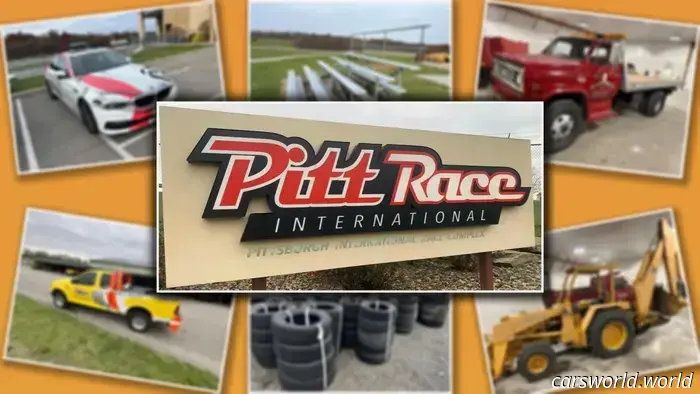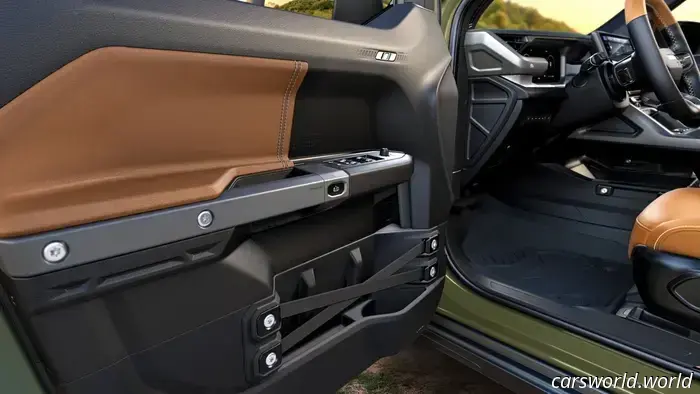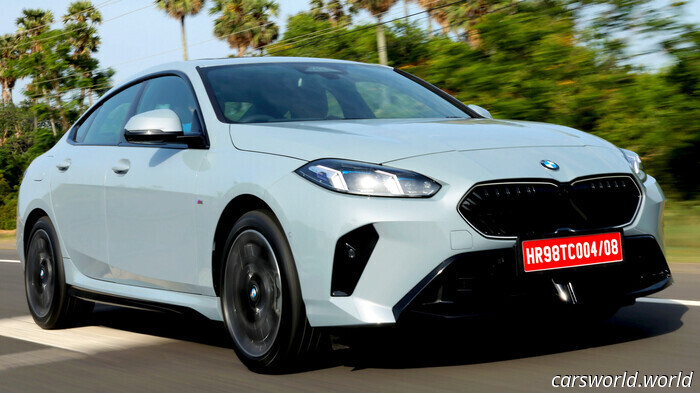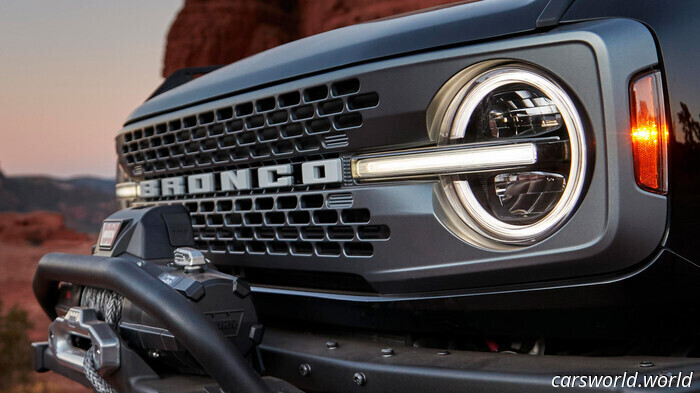
The closing racetrack is in the process of liquidating its vehicles and equipment.
Kiko Auctioneers (edited by the author)
The latest in car news and reviews, no nonsense
Subscribe to our free daily newsletter for the stories that truly matter, delivered to your inbox every weekday.
I’m really growing weary of writing about race tracks shutting down—not because it’s repetitive, but because it’s upsetting. Pittsburgh International Race Complex, commonly known as Pitt Race, is yet another enjoyable venue facing a heartbreaking closure. While there were significant efforts to save it, there's only so much that fans can do. The decision has been made, and soon there will be a large liquidation sale. It’s a true goldmine.
Don’t mistake this for me celebrating Pitt Race’s demise. That’s not my intention. I’m simply astonished by what’s available on the auction site. Are you in the market for a stylish 1975 Chevy C60 rollback truck? I know I am! What about high-performance lawn mowers, including a double-dually Ventrac 4500Z featuring all-wheel drive and an articulating chassis? Absolutely!
Kiko Auctioneers
Besides all the equipment necessary to run a racetrack—like backhoes, tractors, flatbed carts, and more—there is also a plethora of miscellaneous items. Lots include everything from buckets of floor dry to hydraulic oil, shop vacuums, paint sprayers, filing cabinets, tool boxes, magnets…whatever you can think of. Whether you manage a 50-acre facility or just maintain a one-car garage, there's something for you there.
The landing page for the liquidation sale at Kiko Auctioneers lists 29 Birel racing karts, eight different BMWs, dump trucks, a fire truck, and much more. Many locals—and yes, I include myself in that group—would be thrilled to take some spare fencing off their hands as well. We could probably even find a solution for the nine miles of guardrail.
Kiko Auctioneers
Bidding has not opened yet. The auction company will begin accepting bids on December 2, with online offers available through their site. An in-person preview of all the vehicles and heavy machinery will take place on Saturday, December 6, with removal scheduled for December 15 and 16 from 10 a.m. to 2 p.m. ET. If you’re purchasing all that guardrail, however, you’ll get additional time to collect it. It’s stated right here.
Pitt Race provided great fun for local car enthusiasts and anyone involved in the track activities for 25 years. I may seem excited about the sale, but truthfully, I’m more saddened than anything else. We are losing tracks like this at a troubling pace across the nation and in all the flyover states. I’d much prefer to see them return than to ogle at a dump truck for sale, even if that is one of my favorite hobbies.
Have a tip or question for the author? Reach out directly: [email protected]









Other articles
 1,139-HP Cayenne Electric: Porsche’s Most Potent Road Car to Date | Carscoops
The $163,000 Porsche Cayenne Turbo Electric accelerates to 60 mph in 2.4 seconds, featuring a 113 kWh battery and active aerodynamics.
1,139-HP Cayenne Electric: Porsche’s Most Potent Road Car to Date | Carscoops
The $163,000 Porsche Cayenne Turbo Electric accelerates to 60 mph in 2.4 seconds, featuring a 113 kWh battery and active aerodynamics.
 Bollinger Motors Has Ceased Paying Its Invoices.
Various sources suggest that the electric commercial truck company based in Michigan is falling apart.
Bollinger Motors Has Ceased Paying Its Invoices.
Various sources suggest that the electric commercial truck company based in Michigan is falling apart.
 The Interior of the Jeep Recon Was Designed for Customization.
The Jeep Recon features actual bolts and straps within the interior that can be rearranged or taken out, allowing you to attach your own accessories.
The Interior of the Jeep Recon Was Designed for Customization.
The Jeep Recon features actual bolts and straps within the interior that can be rearranged or taken out, allowing you to attach your own accessories.
 Most Populous Country in the World Suggests Prohibition on Premium Gasoline Vehicles | Carscoops
A recent proposal from the Supreme Court could accelerate India’s shift to electric vehicles by focusing on luxury internal combustion engine cars, while not adversely affecting the mass market.
Most Populous Country in the World Suggests Prohibition on Premium Gasoline Vehicles | Carscoops
A recent proposal from the Supreme Court could accelerate India’s shift to electric vehicles by focusing on luxury internal combustion engine cars, while not adversely affecting the mass market.
 Ford Broncos Are Going Idle and Failing to Start | Carscoops
Nearly 230,000 Bronco and Bronco Sport SUVs are being recalled to address a malfunction in their gauge clusters.
Ford Broncos Are Going Idle and Failing to Start | Carscoops
Nearly 230,000 Bronco and Bronco Sport SUVs are being recalled to address a malfunction in their gauge clusters.
 Lawmakers to Question Ford, GM, and Stellantis Executives About Pricing, Regulations, EV Policies, and Trade Issues
9 hours ago
by Stephen Rivers
The CEOs of Ford, General Motors, and Stellantis are set to testify before Congress in January. The hearing will concentrate on pricing, regulations, EV policies, and trade discussions. Senator Ted Cruz describes the session as a necessary reality check regarding affordability standards.
For the first time in nearly two decades, the leaders of Ford, GM, and Stellantis will convene before Congress. The Senate Commerce Committee has summoned Ford's Jim Farley, GM's Mary Barra, and Stellantis' Antonio Filosa to provide testimony on January 14, in a prominent hearing examining the automotive industry's perspective on federal transportation policy and vehicle affordability.
The discussion will also address the challenging transition to electrification, a topic that continues to generate division among policymakers and automakers alike. Tesla's VP of Vehicle Engineering, Lars Moravy, has been invited to contribute his insights on this subject.
More: Lawmakers Seek Explanations From Hertz Regarding AI Rental Damage System
The last time the CEOs of these three Detroit automakers appeared together on Capitol Hill was in late 2008, during the financial crisis, bailout discussions, and a time when the industry’s future appeared quite uncertain. The current pressure points may differ, but they remain equally significant.
Why Bring Them Together Now?
Senator Ted Cruz, who is leading the hearing, has dubbed it “Pedal to the Policy: The Views of the American Auto Industry on the Upcoming Surface Transportation Reauthorization.”
According to reports from the Union-Bulletin, the hearing will address fuel economy and emissions mandates, tariffs, federal EV policies, new vehicle pricing, and how automakers intend to navigate the coming decade. Cruz characterizes the gathering as a long-overdue assessment of affordability.
“The average price of a car has more than doubled over the past ten years,” stated Cruz, attributing this surge to “burdensome government-mandated technologies and extreme environmental regulations.”
What’s Driving Up Costs?
It’s evident that the average transaction price (ATP) for new vehicles is significantly elevated at present. Data from Cox Automotive indicates that it surpassed $50,000 in September.
A decade prior, that number was in the low $30,000s. Analysts suggest that various factors, not limited to regulation, contribute to this trend. Inflation, tariffs, premium trims, and an increased number of EVs on the market all play a role.
Additionally: EVs Now Move Faster Than Gas Cars in the Used Market
Republicans assert that earlier policy changes, such as the repeal of federal EV mandates and CAFE targets under the One Big Beautiful Bill Act, are steps toward reducing prices. However, Cruz contends that lawmakers need to take further action. This discussion occurs at a crucial time for the U.S. automotive landscape.
The debate arises as the U.S.-Mexico-Canada Agreement (USMCA) is approaching renewal or renegotiation by July 1. If it is not renewed, the consequences could lead to increased vehicle costs, regardless of any new legislation.
A viral video featuring a Robotaxi safety driver who seemed to be sleeping in California has sparked renewed discussion about the safety practices for autonomous vehicles.
Lawmakers to Question Ford, GM, and Stellantis Executives About Pricing, Regulations, EV Policies, and Trade Issues
9 hours ago
by Stephen Rivers
The CEOs of Ford, General Motors, and Stellantis are set to testify before Congress in January. The hearing will concentrate on pricing, regulations, EV policies, and trade discussions. Senator Ted Cruz describes the session as a necessary reality check regarding affordability standards.
For the first time in nearly two decades, the leaders of Ford, GM, and Stellantis will convene before Congress. The Senate Commerce Committee has summoned Ford's Jim Farley, GM's Mary Barra, and Stellantis' Antonio Filosa to provide testimony on January 14, in a prominent hearing examining the automotive industry's perspective on federal transportation policy and vehicle affordability.
The discussion will also address the challenging transition to electrification, a topic that continues to generate division among policymakers and automakers alike. Tesla's VP of Vehicle Engineering, Lars Moravy, has been invited to contribute his insights on this subject.
More: Lawmakers Seek Explanations From Hertz Regarding AI Rental Damage System
The last time the CEOs of these three Detroit automakers appeared together on Capitol Hill was in late 2008, during the financial crisis, bailout discussions, and a time when the industry’s future appeared quite uncertain. The current pressure points may differ, but they remain equally significant.
Why Bring Them Together Now?
Senator Ted Cruz, who is leading the hearing, has dubbed it “Pedal to the Policy: The Views of the American Auto Industry on the Upcoming Surface Transportation Reauthorization.”
According to reports from the Union-Bulletin, the hearing will address fuel economy and emissions mandates, tariffs, federal EV policies, new vehicle pricing, and how automakers intend to navigate the coming decade. Cruz characterizes the gathering as a long-overdue assessment of affordability.
“The average price of a car has more than doubled over the past ten years,” stated Cruz, attributing this surge to “burdensome government-mandated technologies and extreme environmental regulations.”
What’s Driving Up Costs?
It’s evident that the average transaction price (ATP) for new vehicles is significantly elevated at present. Data from Cox Automotive indicates that it surpassed $50,000 in September.
A decade prior, that number was in the low $30,000s. Analysts suggest that various factors, not limited to regulation, contribute to this trend. Inflation, tariffs, premium trims, and an increased number of EVs on the market all play a role.
Additionally: EVs Now Move Faster Than Gas Cars in the Used Market
Republicans assert that earlier policy changes, such as the repeal of federal EV mandates and CAFE targets under the One Big Beautiful Bill Act, are steps toward reducing prices. However, Cruz contends that lawmakers need to take further action. This discussion occurs at a crucial time for the U.S. automotive landscape.
The debate arises as the U.S.-Mexico-Canada Agreement (USMCA) is approaching renewal or renegotiation by July 1. If it is not renewed, the consequences could lead to increased vehicle costs, regardless of any new legislation.
A viral video featuring a Robotaxi safety driver who seemed to be sleeping in California has sparked renewed discussion about the safety practices for autonomous vehicles.
The closing racetrack is in the process of liquidating its vehicles and equipment.
Looking for a single-seater racing kart? There are 29 available. Need a backhoe? No problem. How about nine miles of guardrail? The Pitt Race facility offers all that and much more.
